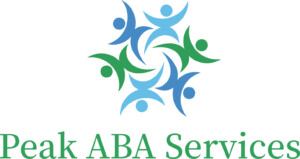“Friendship is the only cement that will ever hold the world together.”
For children with autism, making friends and navigating the world of playmates and group activities can feel like a big puzzle. Social skills are like the secret handshake to forming connections, and sometimes they need a little extra practice to click into place. That’s where Applied Behavior Analysis (ABA) therapy comes in as a game-changer. Think of it as a toolkit that breaks social interactions into small, easy-to-learn steps. With the right guidance, kids can unlock the skills they need to connect with others, build friendships, and shine with confidence in every social setting.
Why Social Skills Matter for Children
Social skills are fundamental for building relationships, expressing emotions, and interacting effectively in various environments. For children with autism, these abilities may not develop naturally, making targeted support crucial. We focus on helping children master these skills so they can thrive in social settings.
Understanding Peer Interactions Through ABA Therapy
Social interactions involve many layers, from understanding facial expressions to responding appropriately in conversations. For children with an Autism Spectrum Diagnosis, these can feel overwhelming. Through tailored strategies, ABA therapy focuses on teaching children how to interpret social cues, take turns, and share ideas during play.
We provide group-based sessions where children practice these skills in structured yet engaging environments. These sessions mimic real-life scenarios, helping children build confidence in interacting with peers while having fun.
Friendship Skills: Breaking It Down
Making friends is more than just saying “hello.” It involves active listening, empathy, and communication. ABA therapy uses evidence-based methods to teach these skills in small, manageable steps. For instance, a child struggling with sharing toys may first practice handing an item to a therapist during a play-based activity. Once they master this, the skill is gradually applied to group settings with peers.
Teaching Empathy and Emotional Understanding
Recognizing and responding to the emotions of others is a vital aspect of social interaction. We use techniques to help children identify emotions in themselves and others, fostering empathy and improving their ability to build connections.
Developing Self-Management Skills
Social situations can sometimes feel unpredictable. Children may face challenges like adapting to changes, handling disagreements, or staying engaged in group settings. We emphasize self-management skills through ABA therapy to help children remain calm, stay focused, and participate effectively in social environments.
Encouraging Parental Involvement
We believe parents and caregivers play a key role in a child’s progress. By offering training and resources, we equip families with the tools to reinforce social skills at home. Simple strategies practiced daily can lead to significant improvements.
Building Confidence Through Play
Play-based activities are at the heart of many of our interventions. These activities make learning fun and natural, helping children practice social skills in a relaxed setting. Play encourages creativity and collaboration, boosting children’s confidence in interacting with peers.
In Closing
Making friends and connecting with others is an important part of childhood, but for children with autism, these moments can sometimes feel overwhelming. Social interactions involve many skills, from understanding emotions to taking turns, and these don’t always come naturally.
At Peak ABA Services Inc., we bring these ideas to life. Using ABA therapy, we help children strengthen their social skills in fun and engaging ways. From one-on-one sessions to group-based learning and school-readiness programs, our tailored approach ensures every child gets the support they need to thrive.




